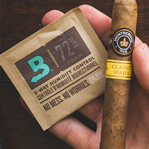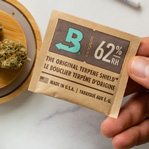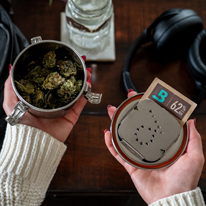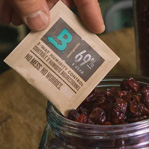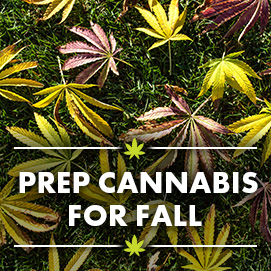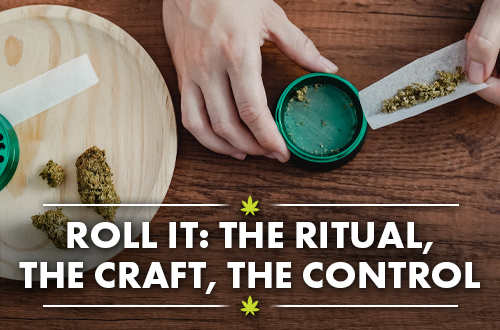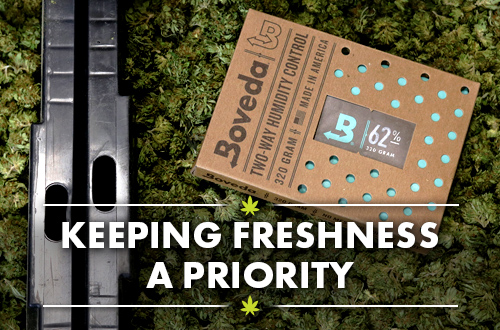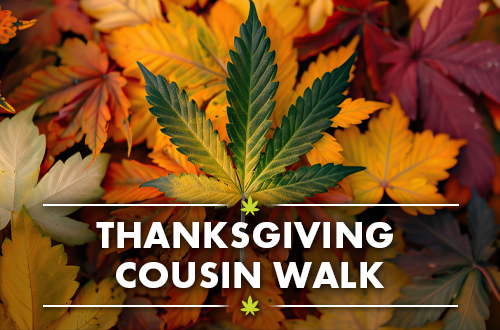SUFFERING FROM PTSD? MANY FINALLY FIND RELIEF WITH CANNABIS
Cannabis has been used medicinally for thousands of years. Medicinal cannabis can effectively ease the symptoms of many illnesses and ailments—from muscle pain and anxiety to multiple sclerosis and cancer. Anecdotal evidence shows that cannabis can also help treat post-traumatic stress disorder (PTSD), which is an anxiety disorder associated with exposure to violence, sexual assault or other traumas.
An estimated 7.8 percent of Americans will experience PTSD in their lives.
LIVING WITH PTSD—AVOIDING OPIOID ADDICTION
At the time of trauma, adrenaline and stress hormones are hyper-responsive. If PTSD persists, these hyper responses can change brain chemistry.
People suffering from PTSD can experience long-term effects, such as extreme anxiety, night terrors, hypervigilance and flashbacks. Medicinal cannabis’s natural abilities to boost relaxation and reduce anxiety help reduce these symptoms. Many PTSD patients are denied access to the medicine they so desperately need because cannabis is illegal at the federal level.
Typical treatment for PTSD usually relies on a combination of therapy and powerful prescription drugs, including sedatives, antidepressants and antianxiety medications. These drugs can be habit forming and have severe side effects, such as drowsiness, nausea, weight gain and decreased sexual function. There is no known cure for PTSD; these treatments simply act as a Band-Aid.
UNLOCKING THE KEY TO RELIEF—CANNABIS AND THE ENDOCANNABINOID SYSTEM
For those with PTSD, cannabis can be a game-changing alternative to prescription medications. Reducing the risk of side effects and dependence, flower can aid in relaxation, ease stress and alleviate excess worry. But it isn’t just “getting high” that helps treat PTSD—it’s the science behind cannabis itself.
Cannabis plants contain active ingredients called cannabinoids, which are responsible for the plant’s effects. Two of the main cannabinoids are THC, which gives people the “high” associated with marijuana, and CBD, a non-psychoactive cannabinoid known for its medicinal properties. CBD is highly effective for treating epilepsy, chronic pain, nausea and other ailments.
The endocannabinoid system, made up of CB-1 and CB-2 receptors throughout the body, processes THC and CBD. The receptors also regulate naturally occurring endocannabinoids, including anandamide and 2-AG. These endocannabinoids are made from fat-like molecules within cell membranes and are responsible for maintaining balance throughout the body.
Researchers have found that people with PTSD have lower levels of anandamide, which leads to a deficiency throughout the endocannabinoid receptor cells.
Martin A. Lee, a researcher from the Multidisciplinary Association for Psychedelic Studies (MAPS), explains:
“Scientists have determined that normal CB-1 receptor signaling deactivates traumatic memories and endows it with the gift of forgetting. But skewed CB-1 signaling, due to endocannabinoid deficits (low serum levels of anandamide), results in impaired fear extinction, aversive memory consolidation and chronic anxiety, the hallmarks of PTSD.”
SECURING SAFE, LEGAL ACCESS TO MEDICINAL CANNABIS
Despite evidence that cannabis could be a safe and viable treatment for post-traumatic stress, the plant remains classified as a Schedule I narcotic with no known medical benefits. As of July 2018, 30 states (plus Washington D.C.) have legalized medicinal cannabis. Twenty six states (plus Washington, D.C., and two U.S. territories) allow medical marijuana to be used in treating PTSD, according to The Cannabist.
Securing access to high-quality, tested medicine for thousands of patients is certainly a step in the right direction. There remains a large segment of the population who cannot obtain medical cannabis.
Military veterans are more likely than civilians to have PTSD, especially those veterans who engaged in war or combat. According to the Department of Veterans Affairs (VA), anywhere between 11 and 30% of vets experience PTSD.
On average, 22 veterans commit suicide every day in the United States.
Often the deaths can be attributed to extreme PTSD symptoms. Unfortunately, because of marijuana’s Schedule I status, the VA refuses to discuss medical cannabis as a treatment option with clients. Veterans risk losing their government benefits if they are caught using cannabis, which forces many to “illegally heal” without the guidance of a medical professional.
There is good news on the horizon. The very first federal study on the effects of cannabis on veterans with post-traumatic stress is currently underway. Leading the research is Dr. Sue Sisley, who is acclaimed in the medical cannabis community for her dedication to veteran access. VA pressure, however, is making it difficult for the research team to find qualified participants.
Fortunately, the American Legion recently urged the VA to support the study. If cannabis is found to be an effective treatment for vets with PTSD, it could lead to a major shift in how the condition is managed, by the VA and other health professionals.
HERE’S HOW YOU CAN HELP:
Personalize the message below that supports The American Legion’s efforts to advocate for medical cannabis research. Then email it to your elected officials.
-Remove marijuana from Schedule I! Allow PTSD sufferers, including vets and first responders, access to legal, high-quality medicinal cannabis.-
PRESERVING THE HEALING BENEFITS OF CANNABIS WITH BOVEDA
Post-traumatic stress is a wide-reaching mental health disorder that affects millions of Americans yet has no known cure. While prescription drugs, along with therapy, may assist in treating some of the symptoms of PTSD, the side effects of those medications can be too much for many patients.
Cannabis has the potential to be a natural alternative to powerful anti-psychotics and sedatives and could surpass these drugs as a safe and effective treatment option. While more research needs to be done, cannabis does appear to help patients battle what could otherwise be a terrible, debilitating condition.
Those considering cannabis to treat PTSD should discuss this with their general practitioners prior to use. Patients should only use tested, high-quality medicine from a licensed dispensary. Friendly and knowledgeable staff is always willing to answer questions about different strains, delivery methods and possible effects.
As with many other medications, patients should keep cannabis in a cool, dry place that is out of reach to children and pets.
Exposure to humidity swings can jeopardize the therapeutic benefits of flower. Many patients tuck Boveda in with their medicine to prevent over-drying and molding. Boveda uses natural salts and pure water vapor to automatically add and absorb moisture. This 2-way humidity control locks in the precise humidity level that is perfect for herbal medicine. And buds stored with Boveda can retain up to 15% more terpenes.
BOVEDA SO SMALL. FLOWER SO FRESH.
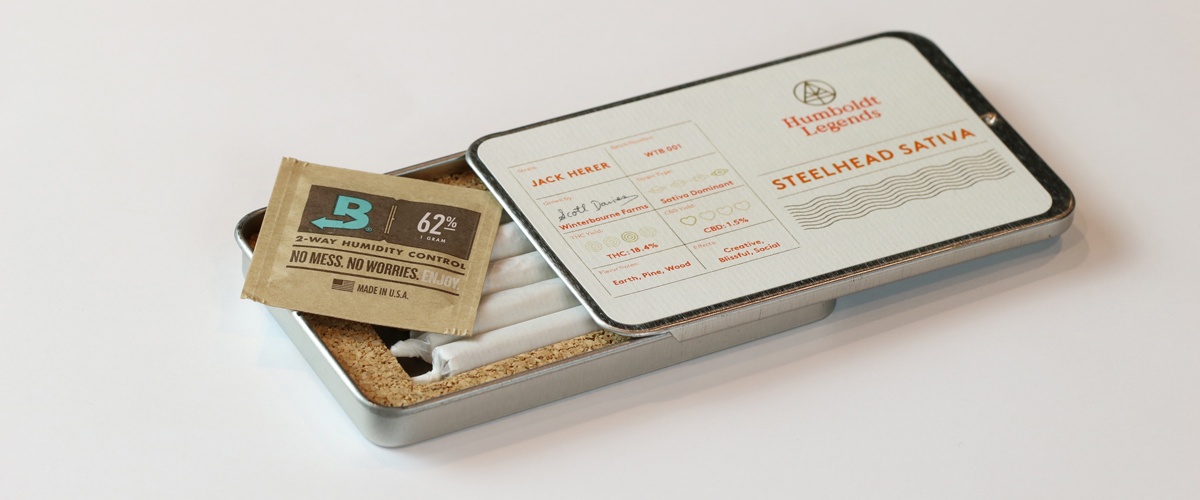
Boveda is available in a personal dosage size (1 gram) to protect up to 3.5 grams of flower.

By Rachelle Gordon
www.RachelleGordon.net
Rachelle Gordon is a Minneapolis-based freelance writer and educator in the cannabis space. She has dedicated herself to informing others about the powers of plant medicine after witnessing her father’s struggle with epilepsy (and subsequent stroke) in her childhood.
Rachelle’s posts are being provided for informational purposes only; they do not constitute an endorsement or an approval by Boveda of any of the products, services or opinions of Rachelle. Boveda bears no responsibility for the accuracy, legality or content of this post or links to the posts. Contact Rachelle Gordon for answers to questions regarding her content.
